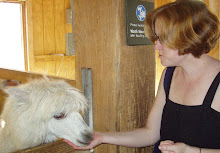There is certainly no monopoly out there on "right" choices in this line of work. Clearly it is more complicated than all of that. There is not so much a right choice as there are choices that work, don't work, or work better.
So often I run into young actors who think that comedy is about artificial choices. They talk about this mysterious thing called "timing" that no one really knows how to measure. Does "timing" require a one second pause? Two? Eighteen?
Young apprentices of American acting have complained that funny choices aren't necessarily "real" choices. I've watched as young actors study the great comedians for the first time, dissecting their choices and trying to place value on every movement, every vocal utterance. Nobody really waves their arms that way! People don't raise their voices that high during a conversation! Sure, it's funny, but it isn't real! It isn't natural!
Poppycock.
No choice is a funny choice unless it is a true choice.
Funny is not some magical thing that happens outside of the circumstances. The circumstances create the funny. How the characters respond to the stimulus is where funny happens.
Have you ever seen the episode of "All in the Family" where Michael breaks Archie's chair? It is a simple dilemma; goofy son-in-law breaks father-in-law's favorite chair. That, in and of itself, is not inherently funny until we decide to zoom in and focus on it. Archie loves that chair. He has spent decades cooling his heels in that chair. He hates Michael. Michael knows that if Archie finds his chair missing that Archie will be beyond angry. The family conspires to keep Archie in the dark. The circumstances build. When Archie returns home from work and the chair has not been delivered from the furniture repair shop we have no problem believing that Archie does not notice the chair is missing right away because Archie's tendency to be self-absorbed has already been well established. Edith drags him into the kitchen and Archie is suspicious. He accuses Edith, "Did you put new curtains up in there or something?" She replies, "Only about eight years ago." "Oh. That must be it then."
When Archie finally discovers that his beloved chair is missing he does seemingly uncharacteristic dances, waves his arms about theatrically and begins threatening every object in sight that might have any sentimental value to Edith. It isn't the physical actions in an of themselves that are funny. Try it. Start dancing around for no reason. I doubt anyone will find it funny. Indeed, they will only think it is strange. However, Archie's sarcasm and desperate tantrums are funny because his attachment, his NEED for his chair is so intense. We, as the audience, know that his chair is not vital to his survival as a human being but we can relate to things in our own lives that, if threatened, would make us barking mad. Carroll O'Connor has endowed this chair with such fierce meaning that we understand exactly why he is upset, even though it is irrational. It is the truth of his needs that is funny, not the hand waving or the dancing around. Find the truth of the moment and you will find the funny.
That's all fine and good, but where does that leave the actor in rehearsal? Isn't there a delicate balance that makes something funny? Yes. Indeed there is. Comedy is deadly serious. The stakes are always high and a good comedy writer knows this and chooses the circumstances accordingly. I used to crack wise about how one of my favorite dramas "Equus" by Peter Shaffer, a psychological drama about a psychiatrist treating a young boy who blinds six horses with a metal spike, would be a brilliant comedy if it were merely set on a carousel instead of a stable. You wouldn't have to change a word! Of course, I am being facetious but only to illustrate my point that the subject matter is always serious but the circumstances are just a bit absurd. Just like Archie's intense attachment to his favorite chair.
Timing should be none of your concern. If you are in the moment and building your circumstances appropriately, the timing should come naturally. I find that only young, "serious actors" complain about holding for laughs. Those who come at acting through comedy relish that little break to let themselves stew, raising the stakes and making things even funnier. It isn't about "holding" as if you were putting yourself on pause until the laughter dies down. It is about building. I move that we should replace the phrase "holding for laughs" with "building for laughs".
What it all boils down to is this- be present in the moment and be specific and hey, isn't that your job description in the first place?
Monday, October 30, 2006
Subscribe to:
Post Comments (Atom)



No comments:
Post a Comment